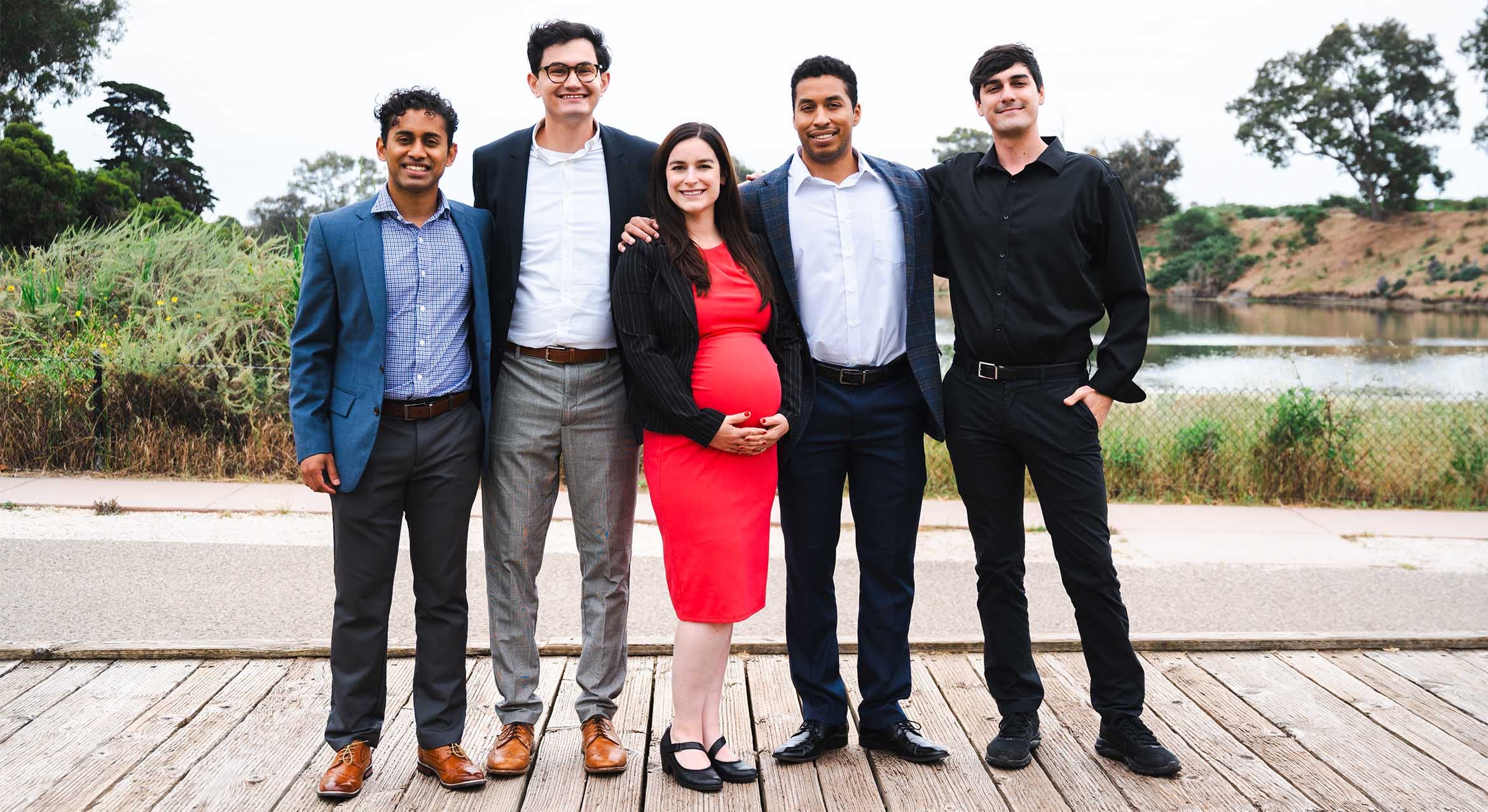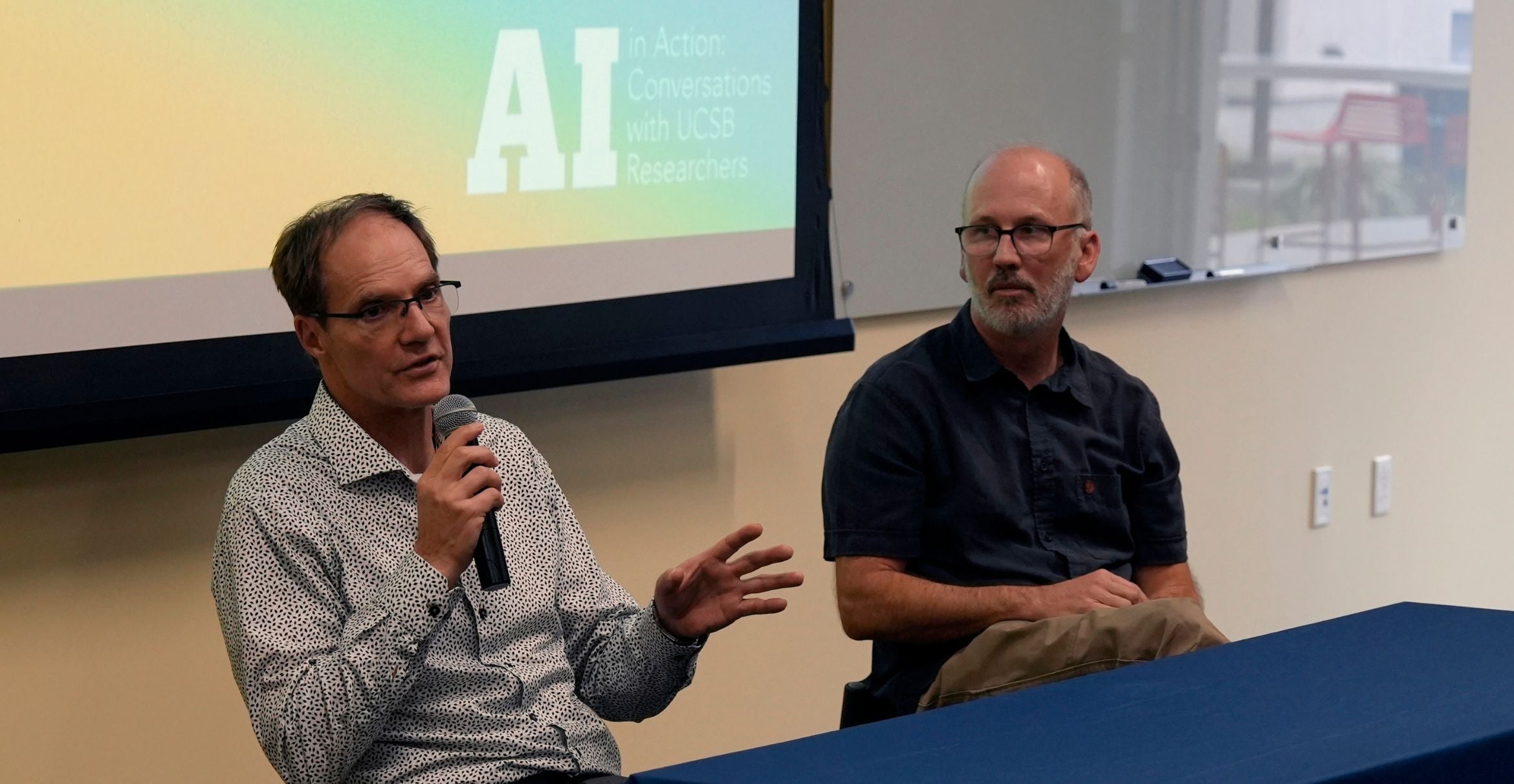Graduate students receive national research fellowships, with significant funding
Engineering graduate students Griffin Tong (materials), Joshua Baston (materials), Max Emerick (mechanical engineering) and Wesley Mills (electrical and computer engineering) have won a significant national award to pursue their respective doctoral research projects.
The four are among 162 total awardees of the 2024 National Defense Science and Engineering Graduate (NDSEG) Fellowship, which covers tuition, a $43,200 annual stipend, health insurance and travel funds.
“This is a very competitive award, so we are proud of these students, who represent different departments in our highly regarded College of Engineering,” said Leila J. Rupp, Interim Anne and Michael Towbes Graduate Dean. “We also applaud their faculty advisors, who do the important work of mentoring them as researchers who will go on to make original contributions in academia or industry. As the comments of awardees make clear, receiving such a prestigious fellowship has benefits beyond the financial support, as important as that is.”
Doctoral candidate Emerick’s research focuses on control theory and dynamical systems. He applied for the fellowship three times before receiving good news this year. “I'm really grateful for the opportunity and for all of the support and feedback I've received along the way. Several weeks after hearing the news I'm still in disbelief,” he said. “I've been working hard for it for a long time now. I knew it was a possibility but always felt like it was a bit of a long shot.” Beyond the three-year funding and support for his research, he looks forward to the award’s strong networking and mentorship component. “Hopefully that brings opportunities to meet people working on similar things.”
Mills is interested in integrating metasurfaces with traditional vertical cavity surface-emitting lasers (VCSELs) to push beyond the current device limitations. “One of my goals at UCSB is to remain in awe of my research,” he said. “I think it’s easy — amidst the constant pressure to publish meaningful results in top-tier journals — to forget the beauty of science. I find my work, at the intersection of optics, material science and electrical engineering, to be endlessly fascinating, and I try never to lose sight of that.”
The fellowship, Mills said, also helps him overcome an internal obstacle. “Receiving this award also helped me overcome the imposter syndrome I feel, which is another thing I'm fairly certain most of us struggle with,” he said. “This award will help me advance my research by freeing up time, which would otherwise be used for TAing to ensure I have a paycheck. Also, receiving the NDSEG is a line I can write on my CV which will stand out to future potential employers post-graduate school.”
Meanwhile, Baston will kick off his graduate school journey at UCSB this fall. “I chose UCSB to pursue a Ph.D. in materials due to the program’s priority on graduate students and the largely communal atmosphere,” he said. “It was one of the few places that I felt groups truly interacted together regularly and shared ideas between each other. On top of that, there was a strong focus on materials for aerospace applications which made it a no-brainer come decision day.”
Baston graduated with his bachelor’s degree in materials engineering from the University of Wisconsin-Madison. He plans to expand his undergraduate research on alloy design and metallurgical processing for high-temperature aerospace applications with his UCSB advisor, Professor Tresa Pollock. “I am passionate about aerospace propulsion and the materials needed to survive those conditions,” he said. “Commercial jet aircraft alone result in almost 2.5% of global CO2 emissions with a large chunk of that coming from the fact we simply do not have the metals and ceramics capable of combusting jet fuel at its maximum efficiency. My research at UCSB aims to solve this by investigating new metals and material processing methods that will allow for higher temperature turbine jet operation.”
The external fellowship offers Baston flexibility and a chance to build on his ambitions. “These mitigate the financial barriers to taking my work potentially against what the current funding proposals are for and allow more personal expression and creativity in the projects I am working on,” he said. “Once I get a Ph.D. and move into my career, I see myself leading a group in an aerospace company's materials development/ processing division or employed with a start-up contractor. I really like working on science that is 3-5 years out and assisting on getting technology coming out of academia and national labs implemented into real world products.”
Over 4,400 NDSEG fellowships have been awarded since 1989.



